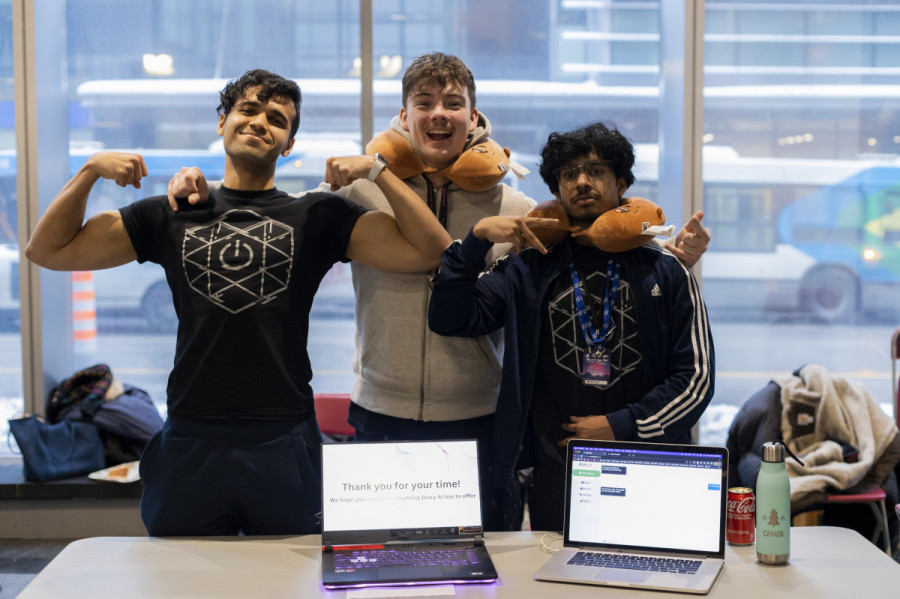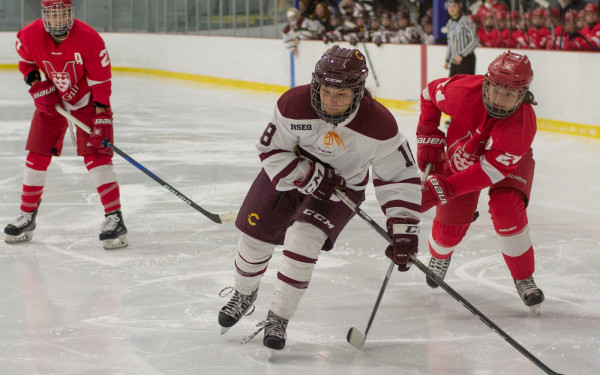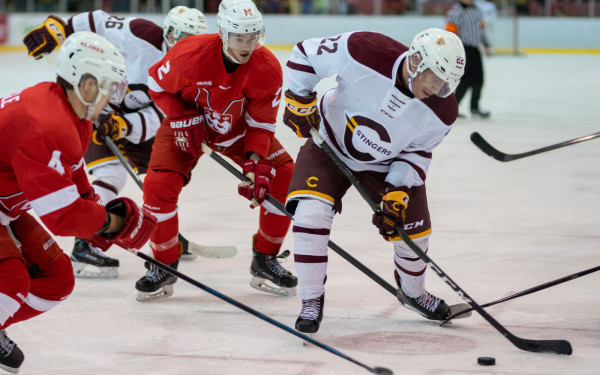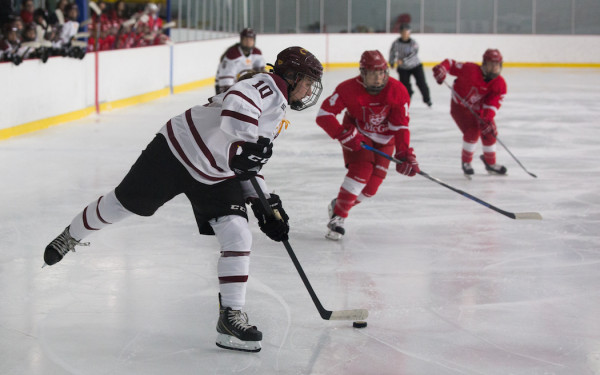Community Through Computer Competition
ConUHacks Returns to JMSB
During what should have been a tranquil Saturday morning in the John Molson School of Business, a sea of eager participants and tech mentor booths replaced the calm with an energized, positive atmosphere.
For the first time since the beginning of the COVID-19 pandemic, ConUHacks returned in-person for its seventh iteration.
Attendees were tasked with navigating a 24-hour marathon on the Sir George Williams campus over the weekend of Jan. 21-22. Hosted by HackConcordia, the event itself saw a plethora of student participants from across Canada complete specific projects and tasks for a chance to win prizes. Outside the competition element, the venue provided sponsors, mentorship and workshops to help augment the skills of attendees.
Charlene Baay, Co-President of HackConcordia, expressed her delight at the reintegration of ConUHacks on campus.
Baay said that with the 17 sponsors attending the event it was a chance for everyone to make and build connections. Baay and her team scheduled a variety of enjoyable activities coinciding with the event’s professional ventures. Items listed included “the anime club setting up anime to play throughout the event”, as well as video games, physical activities during the evening and food breaks where different groups could banter.
Yuvy Goodtime is a political science student who attended ConUHacks VII. Goodtime’s group worked on a presentation for sponsors at the event. The presentation was designed to incorporate innovative ideas to help with tech development. Despite the competitive atmosphere, Goodtime praised the experience and first-hand discourse with fellow tech experts more than anything else.
“It’s our second time participating,” said Goodtime. “We also participated online last year. [The hackathon] is a big part of our academic journey.”
Goodtime elaborated on the differences between the year prior and the 2023 installment when he said, “in-person, it’s mainly the building of connections and actually getting to meet people who aren’t just a Discord handle or on social media.” He added that participants being from a variety of different programs allowed for ideas to prosper among strangers.
Groups were scattered across rooms on campus, with teams brainstorming and strategizing their next steps for a set project. Preparation for the overnight stay within the narrow confines proved to be challenging, yet not daunting for certain participants.
For the team of Tadg O’Hare, Nathan Coulas and Dhirran Piravaharaa, who wore neck pillows during their interview while waiting in line for lunch, comfort was ironically not a main focus.
“We just keep winging it. Posted up in our room,” said Coulas. Piravaharaa echoed this sentiment, saying, “Just keep working. Find a room and just grind.”
The team acknowledged that their room was cozy to start, aiding the speed with which their project could be constructed.
“We’ve got a bit of starting code done for an A.I. interactive journal,” O’Hare explained. Modelling their idea after the ChatGPT, an artificial intelligence built to interact in a conversational manner, their project’s premise was to “implement our own version of this [program],” said O’Hare. “But instead of a chat bot, it’s more of a journaling bot fit for larger responses.”
With motivation on their side, the team of three’s chants of “think it the best, dream it the best, do it the best” resonated throughout the mezzanine.
According to Toby Jones, HackConcordia’s executive of community, by the end of the second day, it was the biggest hackathon participation within Concordia and Quebec ever. The participation numbers beat the previous record established from the hackathon’s fifth installment. Over 800 hackers were admitted in-person. A total of 780 from pre-registration and more late-comers who joined after the event started. There were 138 projects that were submitted.
This article originally appeared in Volume 43, Issue 10, published January 24, 2023.

_900_599_90.jpg)

_900_600_90.jpg)


4_600_375_90_s_c1.jpg)


